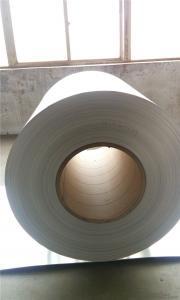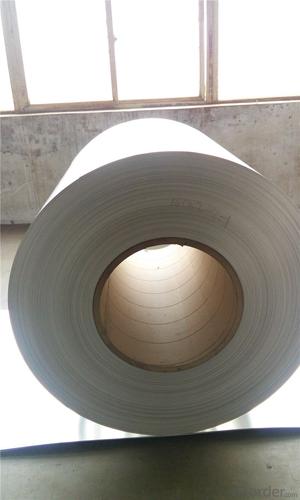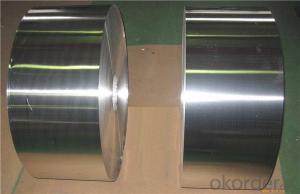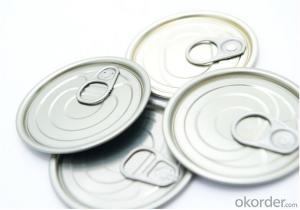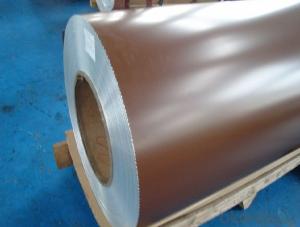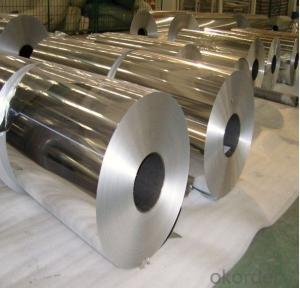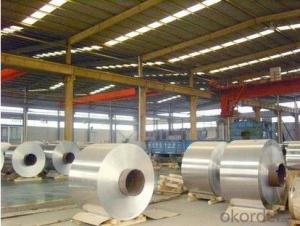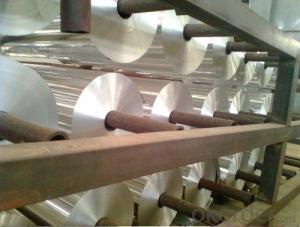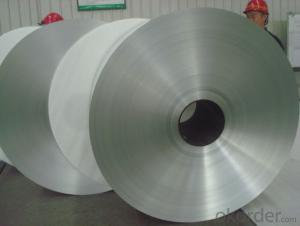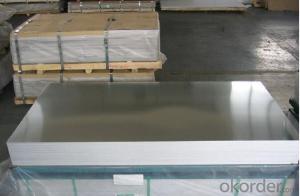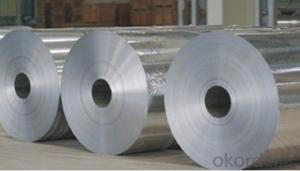Kaycan Aluminum Coil - ASTM Grade 1070 Aluminum Strips Belt for Solar
- Loading Port:
- Shanghai
- Payment Terms:
- TT OR LC
- Min Order Qty:
- 5 m.t.
- Supply Capability:
- 500 m.t./month
OKorder Service Pledge
OKorder Financial Service
You Might Also Like
Specification
ASTM Grade 1070 Aluminum Strips Belt For Solar
aluminum coil specifications:
1) Alloy :1050, 1060,1100, 3003 3004 3105 3A21 5005 5052 etc
2) Temper: O/H12/H14/H1/H18/H32/H34/H36/H38//H111/H112/H116/H321/T6/T651/T3/T351 etc
3) Thickness: 0.1mm to 6mm
4) Width:20mm to 3300mm
5)Coil weight: 100kgs to 6 tons depends on actual requirement
6)Core material: Aluminum or paper
7)Coil Inner diameter: 75mm, 150mm, 200mm, 300mm, 405mm, 505mm or as required
8) Protective film can be added
item | 3003 Aluminum coil | |
Standard | GB/T3190-2008,GB/T3880-2006,ASTM B209,JIS H4000-2006,etc | |
Material | 1060,1050,1100 3003,3103,3004,3005,3105 5052, 5454,5754 | |
Size | Thickness | 0.5mm-3.5mm |
Width | 800-1500mm | |
Weight/Roll | About 1.5MT/3MT | |
Quality control | Mill Test Certificate is supplied with shipment, Third Part Inspection is acceptable. | |
Surface | Bright, polished, hair line, brush, checkered, embossed, etc | |
Trade terms | Price term | ,FOB, CNF, CIF, etc |
Payment Term | TT,L/C | |
MOQ | 2MT | |
20 GP Capacity | About 20-25MT | |
Delivery time | 1.The products will delivery immediately after receiving the payment. 2.According to the order quantity, prompt delivery. | |
Export to | Ireland,Singapore,Indonesia,Ukraine,Spain,Canada,USA,Brazil,Thailand,Korea,Iran,India,Egypt,Kuwait, Oman,Viet Nam, South Africa, Dubai, Russia, etc | |
Package | Stick blue film→plastic film→waterproof paper→1~2 tons on a export standard pallet(corner protection) | |
Application | 1)Further making utensil.2)Solar reflective film3)The appearance of the building4)Interior decorating:ceilings,walls,etc.5)Furniture cabinets6)Elevator decoraction7)Signs,nameplate,bags making.8)Decoration inside and outside the car9)Household appliances:refrigerators,microwave ovens,audio equipment,etc.10)The consumer electronics:mobile phones,digital cameras,MP3,etc. | |
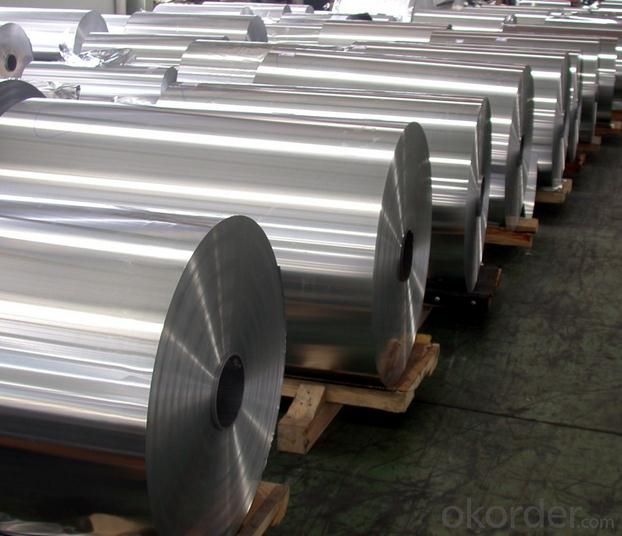
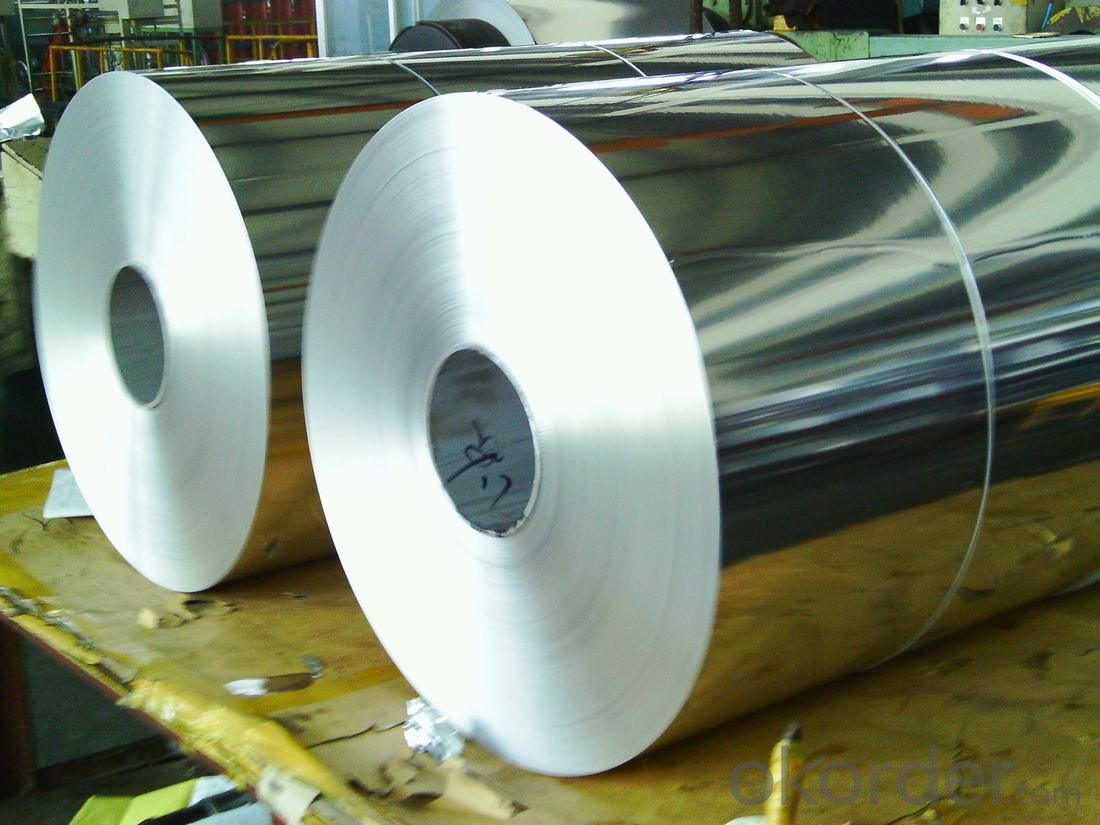
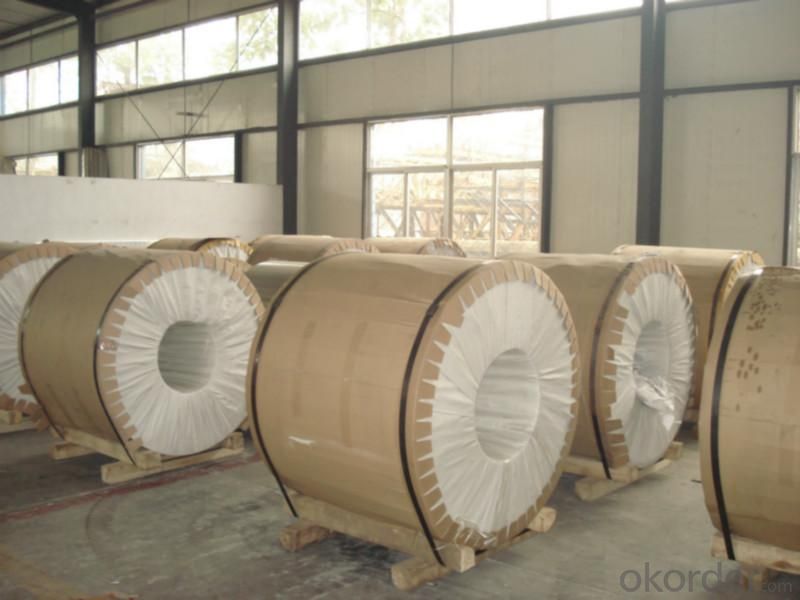
- Q: How are aluminum coils tested for dimensional accuracy?
- Aluminum coils are typically tested for dimensional accuracy through a variety of methods, including measurement of thickness, width, and diameter. These measurements are carried out using specialized tools like micrometers, calipers, and gauges. Additionally, visual inspections are performed to ensure the coils meet the required specifications and are free from any deformities or irregularities.
- Q: Are aluminum coils suitable for marine environments?
- Due to their excellent corrosion resistance properties, aluminum coils are well-suited for use in marine environments. One of the reasons for this is that aluminum naturally develops an oxide layer on its surface, which acts as a protective barrier against saltwater corrosion. Consequently, aluminum coils demonstrate a high level of resistance to rust and deterioration caused by exposure to marine conditions. Furthermore, the lightweight nature of aluminum makes it an ideal choice for marine applications where reducing weight is crucial. Moreover, aluminum coils possess good thermal conductivity, which is advantageous for dissipating heat in marine cooling systems. All in all, aluminum coils are a dependable and durable option for marine environments, guaranteeing long-lasting performance and minimal maintenance needs.
- Q: How are aluminum coils protected against chemical exposure?
- Various methods are employed to safeguard aluminum coils from chemical exposure. One prevalent approach involves applying a protective coating or finish to the coil's surface. This coating serves as a barrier, shielding the aluminum from potentially harmful chemicals and preventing direct contact and corrosion. Another technique is anodization, whereby the aluminum surface is treated electrolytically to create a layer of oxide. This oxide layer not only provides excellent resistance against chemical exposure but also enhances the overall durability of the coils. Anodized aluminum coils find extensive use in industries like construction, automotive, and aerospace, where chemical resistance is of utmost importance. Additionally, aluminum coils can be safeguarded by employing specific alloys designed to withstand chemical corrosion. These alloys incorporate additional elements, such as copper or magnesium, which bolster the aluminum's resistance to chemical attack. By carefully selecting the appropriate alloy composition, manufacturers can ensure that the aluminum coils are better equipped to endure chemical exposure. In summary, protecting aluminum coils from chemical exposure necessitates a combination of protective coatings, anodization, and the use of corrosion-resistant alloys. These measures play a vital role in prolonging the lifespan of the coils and maintaining their performance even in harsh chemical environments.
- Q: What influence do aluminum coils have on the welding process?
- <p>Aluminum coils can significantly affect welding work due to their unique properties. Aluminum has a high thermal conductivity, which requires more heat input to achieve the necessary temperature for welding. It also has a high oxide layer that can interfere with the welding process, leading to porosity and poor joint strength if not properly managed. Additionally, aluminum's low melting point can cause challenges in maintaining the correct temperature during welding. Specialized techniques, such as TIG (Tungsten Inert Gas) welding, and the use of appropriate filler materials are often necessary to ensure a successful weld. Proper cleaning and preparation of the aluminum surface are also crucial to prevent contamination and ensure a strong, defect-free weld.</p>
- Q: What are the different coil winding options for aluminum coils?
- There are several coil winding options for aluminum coils, each with its own advantages and applications. 1. Layer Winding: This is the most common and simplest method, where the coil is wound in a single layer. It is cost-effective and suitable for applications where high voltage or high current is required. 2. Disc Winding: In this method, the coil is wound in a disc-like shape, with each layer stacked on top of the previous one. This winding technique allows for better heat dissipation and is often used in high-frequency applications. 3. Helical Winding: Helical winding involves winding the wire in a spiral pattern around the coil form. This method allows for a higher number of turns in a given space, resulting in increased inductance. It is commonly used in applications requiring high inductance, such as transformers and inductors. 4. Interleaved Winding: Interleaved winding is a technique where multiple layers of coil windings are interleaved, meaning one layer is wound in one direction, and the next layer is wound in the opposite direction. This method helps reduce the overall size of the coil and improves its efficiency by reducing the proximity effect. 5. Foil Winding: Foil winding involves using thin layers of aluminum foil instead of wire to create the coil. This method offers better cooling and reduces the overall size of the coil. It is commonly used in high-power applications, such as electric vehicle motors and power generators. 6. Sectional Coil Winding: In this method, the coil is divided into sections, and each section is wound separately. It allows for better control over the coil's shape and size, making it suitable for unique or irregularly shaped applications. The choice of coil winding option depends on factors such as the desired electrical characteristics, space constraints, cooling requirements, and cost considerations. It is important to carefully analyze the requirements of the specific application before selecting the appropriate coil winding technique for aluminum coils.
- Q: Can aluminum coils be insulated?
- Yes, aluminum coils can be insulated. Insulation is commonly applied to aluminum coils in order to improve energy efficiency and prevent heat loss or gain. The insulation material is typically wrapped around the aluminum coil, forming a protective layer that helps to reduce thermal transfer. This insulation process helps to maintain the desired temperature inside the coil and prevents condensation, which can cause damage. Additionally, insulation can also improve the overall performance and lifespan of the aluminum coil system.
- Q: Can aluminum coils be used in extreme weather conditions?
- Yes, aluminum coils can be used in extreme weather conditions. Aluminum is a highly durable and corrosion-resistant material, making it suitable for various weather conditions including extreme heat, cold, humidity, and exposure to harsh elements.
- Q: Can aluminum coils be used in the production of aluminum downspouts?
- Yes, aluminum coils can be used in the production of aluminum downspouts. Aluminum coils are commonly used in the manufacturing process of downspouts as they can be easily formed and shaped into the desired downspout design. The flexibility and durability of aluminum make it an ideal choice for downspout production, ensuring longevity and resistance to corrosion.
- Q: Are there any fire safety considerations when using aluminum coils?
- When using aluminum coils, fire safety considerations must be taken into account. This is because aluminum is a highly flammable material, and if not handled and installed correctly, it can present a fire hazard. To minimize the risk of fire, it is crucial to install the aluminum coils in a manner that reduces the chance of fire, such as using appropriate insulation and avoiding direct contact with other flammable substances. Furthermore, regular maintenance and inspections should be conducted to detect any potential problems or signs of overheating that may result in a fire. Adhering to fire safety protocols and guidelines, like having a fire extinguisher nearby and ensuring adequate ventilation, can also assist in mitigating the fire risk associated with aluminum coils.
- Q: Are there any limitations on the welding or soldering of aluminum coils?
- Welding or soldering aluminum coils comes with limitations. Aluminum is a reactive metal with a low melting point, making it more challenging to weld or solder compared to other metals. One limitation is the formation of oxide layers on the aluminum surface, which prevents strong bonding during the welding or soldering process. These oxide layers must be removed beforehand, either through chemical cleaning agents or mechanical methods like abrasive cleaning. Another limitation is aluminum's high thermal conductivity, which leads to rapid heat dissipation. This makes it difficult to reach and maintain the necessary temperature for welding or soldering. Overcoming this limitation may require specialized techniques and equipment, such as high-frequency welding or preheating the aluminum. Moreover, aluminum is prone to deformation or warping under high temperatures. This can cause distortion or changes in the coil's shape during welding or soldering. To minimize this, proper clamping or fixturing techniques are often necessary. Furthermore, using filler materials in welding or soldering aluminum coils can be challenging. Aluminum has a relatively high thermal expansion coefficient, meaning it expands and contracts significantly with temperature changes. If the filler material doesn't have a similar expansion coefficient, it can lead to cracks or weak joints. To address this, specialized filler materials like aluminum-silicon alloys are commonly used. In conclusion, while it is possible to weld or solder aluminum coils, it requires specialized knowledge, techniques, and equipment to overcome the limitations posed by the metal's reactivity, heat dissipation, deformation, and filler material selection.
Send your message to us
Kaycan Aluminum Coil - ASTM Grade 1070 Aluminum Strips Belt for Solar
- Loading Port:
- Shanghai
- Payment Terms:
- TT OR LC
- Min Order Qty:
- 5 m.t.
- Supply Capability:
- 500 m.t./month
OKorder Service Pledge
OKorder Financial Service
Similar products
Hot products
Hot Searches
Related keywords
